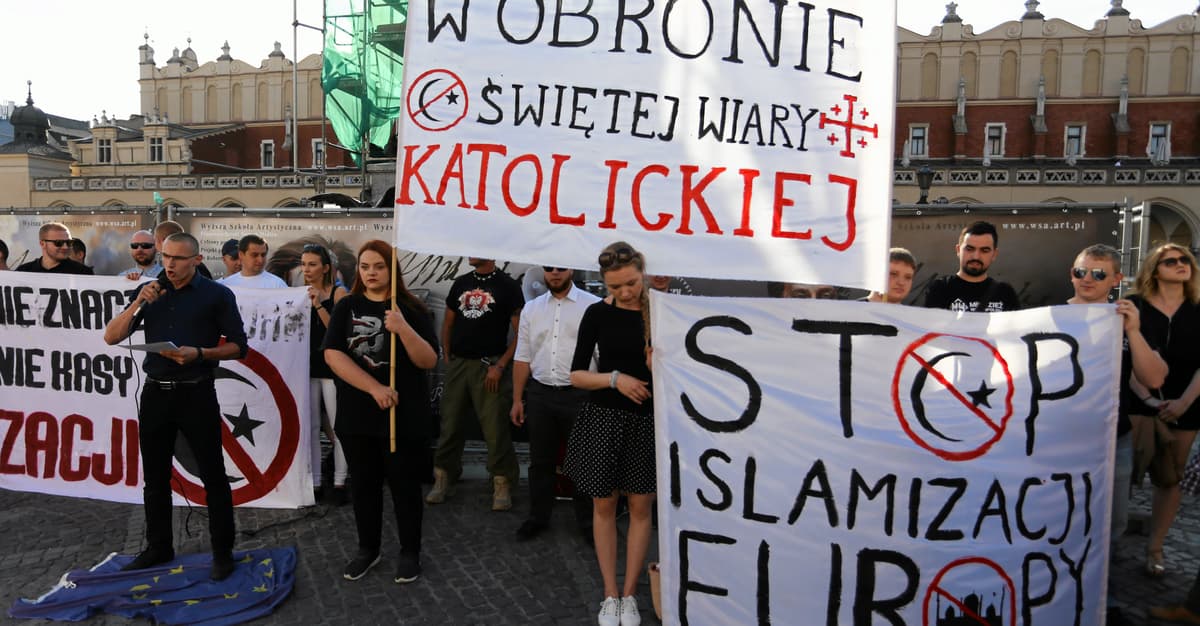85 years ago, on 30 June 1940, General Stefan Rowecki “Grot” headed the underground Armed Forces Union. As chief commander, he created a conspiracy army in the occupied country from scratch. It besides brought together the most crucial underground underground organizations – the National Army.
"Rowecki was the creator and builder of the Home Army. This is the way to find its function in the country's military acquis with full responsibility. He 1 and only could say of himself: National Army – it's me" – he wrote about Gen. Stefan Rowecki in postwar memoirs of Gen. Tadeusz Pełczyński, deputy commander of the AK.
From legions to conspiracy
Stefan Rowecki was born on December 25, 1895. During planet War I he fought in the ranks of the Polish Legions, then joined the Polish Armed Forces. After 1918, Lieutenant Rowecki participated in the fighting against Ukrainians and in Polish-Bolshevik WarIn which he was famous, among another things, for his skillful exit from the russian lap in the Lutsk region.
– After the war, the officer took up editorial activity, says Tadeusz Kaliski, a historian investigating the past of the Polish Underground State. For 3 years Rowecki led the technological department of the Military technological and Publishing Institute, was the editor-in-chief of the “Military Review” and sat on editorial committees of magazines: “Bellony”, “Saper and Military Engineer” and “The Cavalry Review”.
In subsequent years he commanded, among others, the 55th Infantry Regiment in Leszno, the Brigade of the Border defender Corps “Podole”, and on the eve of the Second War he received a mission to form the Warsaw Armored-Motor Brigade. The unit under his command took part in the September campaign, including at the conflict of Tomaszów Lubelski.
A group of officers of the 5th Polish Legion Infantry Regiment. From the left: Władysław Rusin, Stefan Rowecki, Wacław Stachiewicz, Teodor Furgalski. Photo: Wikimedia
After the surrender of the “Lublin” army, consisting of the Brigade, Colonel Rowecki made his way to Warsaw, where he contacted Gen. Michał Tokarzewski-Karashewicz, the commander of the Polish Conspiracy Service. Colonel “Grot” became chief of staff and deputy chief of the SZP, while in the beginning of 1940 he was commandant of Area No. 1 of the Warsaw Armed Combat Union, appointed in place of the SZP.
Two months later, he assumed the command of the ZWZ in the German occupation, shortly besides in the area occupied by the Soviets. On 30 June, as a Brigadier General, he was appointed Chief Commandant of the ZWZ and Commander of the National Armed Forces.
Underground Army
“As the commander of the OGM, Gen. Rowecki led an intensive merge operation under 1 command of the most crucial conspiracy organizations in the occupied country,” noted the historian. As a consequence of 14 February 1942, the National Army was formed, which became the chief commandant.
The underground structures include intelligence and communications branches and the Information and Propaganda Office. In 1940, the General appointed a peculiar unit for diversion and sabotage tasks – the Union of Revenge, and in 1941 formed the Wachlarz organization. Its aim was to conduct diversion actions on the supply routes of the Wehrmacht fighting in the USSR. At the beginning of 1943, Wachlarz and the Union of Revenge were subordinate to the Diversion Management – Kedyv.
It was besides due to the creation of a peculiar N cell in the Information and Propaganda Office, later converted into the Independent N sub-chapter, commonly called Action N. He dealt with intellectual warfare and propaganda against the German occupier.
– At the beginning of the ZWZ, the commander was an opponent of armed action, as they threatened repression by the Germans," Kaliski explains. He adds that the order to shoot the occupier on a larger scale gene. Rowecki only released in the fall of 1942 during the operation of the displacement of Polish villages in Zamość. “As commander of the underground army, the general enjoyed the respect of his subordinates,” emphasises the researcher.
Commander of the Warsaw Brigade General Stefan Rowecki “Grot”in front of the reconnaissance squadron 1 PSK. photograph Wikimedia
– During my years of underground activity, I observed how the authority of “Grota” was constantly increasing in political environments and how his story was spontaneously born in society. He was the commander, whom the soldiers could not see, and yet they gave him full trust and sincere attachment," said Captain Tadeusz Żenczykowski, AK Information and Propaganda Officer, after the war on Radio.
The Germans were very keen to capture General Rowecki. Even a peculiar cell was created in the Gestapo to search for underground leaders. On June 30, 1943, as a consequence of the betrayal of respective members of the conspiracy, who were simultaneously Gestapo agents, the Nazis arrested the commandant of the AK in the Warsaw flat at Spiska Street.
The general was transported to Berlin, where he was urged to cooperate. erstwhile he rejected this proposal, he went to Sachsenhausen concentration camp, to a building for crucial prisoners. “We do not know the exact date or circumstances of the death of “Grota”, explains the historian. He was most likely murdered on the orders of Heinrich Himmler, the SS chief, after the Warsaw Uprising.
According to the findings of the Institute of National Memory, his execution was carried out between 2 and 7 August 1944, most likely at the camp crematorium in Sachsenhausen. There's no telling where he was buried. His symbolic grave is located in the Powązkowski Cemetery in Warsaw.
The "Grot" was a symbol, a mysterious leader who led the full nation from the underground. Those who knew him more closely and who were in direct contact with him at work appreciated his uncommon qualities, predestining him as leader, large individuality, and extraordinary mind. He created an organization of the sizes not yet met and introduced the method of combat previously unknown" – wrote Gen. Tadeusz Bór-Komorowski, the next commander of the AK, in the book "Underground Army".




![„Społeczeństwo islamu nie jest zdolne do reformy” [Ferghane AZIHARI]](https://wcn-media.s3.us-west-004.backblazeb2.com/2026/02/ahmadardity-quran-4951042_1920.jpg)

